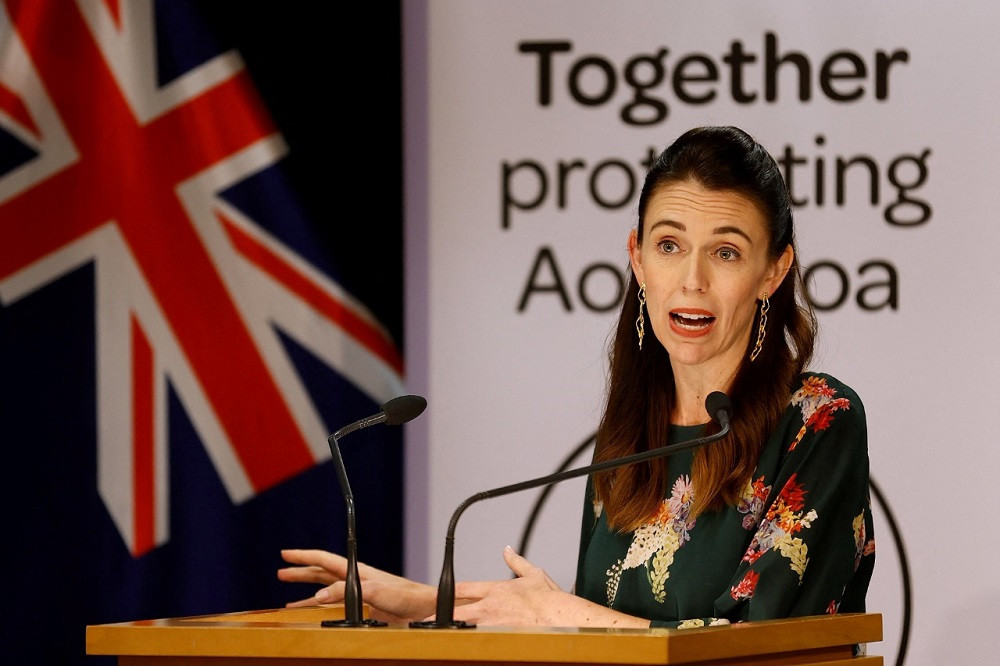Feminine leadership urgent for better post-pandemic recovery and beyond
Women tended to be risk-averse when it comes to human life, but they are risk takers when it comes to economic hardships.
Change Size

I
t is more than a year since the COVID-19 pandemic emerged. The virus has since affected our social and economic development, lives and livelihoods profoundly, and caused health and social crises. As leaders worldwide navigated the calamity, some of them, mostly women, responded better than others.
Evidently, we need more of the feminine leadership style that emphasizes compassion and resilience amid this adversity and uncertainty. A serious attempt must therefore be made to promote gender equality in alignment with recovery efforts to pave the way toward a better world.
From the macro level of heads of state and government to the micro level of organization and community leaders and even matriarchs, we have seen women providing strong and effective leadership.
Moreover, last year’s study by Supriya Garikipati and Uma Kambhampati found that countries led by women were proactive and decisive, and led to lower COVID-19 fatality rates. This finding was consistent with Jack Zenger and Joe Folkman's research, which suggested that women were not only more effective leaders in general, but also better leaders during crises.
The driving force behind the effectiveness of female leaders derives from their behavior, traits and characteristics, which are crucial during a crisis. They showed more compassion for the feelings of others and concern for wellbeing, but were also confident in their plans. They also demonstrated essential skills such as communication, collaboration and flexibility.
As Garikipati and Kambhampati indicated in their study, women tended to be risk-averse when it comes to human life, but they are risk takers when it comes to economic hardships. As for men, some studies argued that when gambling was framed as potential loss, they tended to be more risk-averse than women.
Ultimately, women's risk appetite, or acceptable level of risk, may explain why female leaders were likely to accept the potential economic costs of early lockdowns to save human lives.
These findings may also shine a light on the double burden that women at the micro level have borne during the pandemic, juggling care for their family’s health and safety while making ends met.
According to the International Labour Organization, women performed 76.2 percent on average in total hours of unpaid care work in 2018. In addition, they also managed family expenses more tightly, given the volatility of the economic situation that could lead to reduced incomes.
Data from UN Women show that Indonesian women, who draw their primary income from family businesses, lost more than 80 percent of their earnings. Meanwhile, those who depended on subsidies and other government support saw losses of 24 percent.
Nevertheless, they survived by starting small retail businesses selling products like foods, cookies, plants and handicrafts, or by taking any job available to put food on the table. In doing so, they demonstrated effective crisis leadership for their nuclear families.
Indeed, compassion and resilience alone are insufficient to save the entire nation from this catastrophe. Rational, structured and management skills, traits primarily associated with male leadership, are also imperative for dealing with the health and economic conundrums. However, evidence indicates that gender stereotypes are connected to leadership style.
Many female leaders, for instance, also embrace an evidence-based approach in decision-making. Some are widely renowned for their clear, decisive communication without neglecting to express solicitude, such as German Chancellor Angela Merkel, New Zealand Prime Minister Jacinda Ardern and our own Finance Minister, Sri Mulyani Indrawati. This is the manner in which female leaders adopt a more democratic and participatory style, as opposed to the autocratic and directive leadership style that has been mostly adopted by male leaders.
These female leaders have shown that balancing skills and behavior has proven effective in making the best of an unideal situation.
Effective results are critical in this difficult time. As the crisis continues and intensifies in many places, all leaders should strive to meet this need. Irrespective of gender, anyone can adopt a feminine leadership style to solve difficult problems in any context.
Furthermore, a challenging future awaits after the pandemic. Problems such as climate change, epidemics, natural resource depletion, talent shortages and technological advancements call for a new style of leadership that is more participatory, resilient and inclusive rather than commanding and controlling.
However, accommodating this leadership style is impossible without efforts to drive gender equality. We therefore need to diversify our leadership and provide more opportunities for women to take leadership roles on both the macro and micro levels, whatever they aspire to be.
Government intervention can play a major role in gender equality and inclusion. First, structural barriers, such as sticky floors and glass ceilings as well as barriers and bias that hinder women from realizing their potentials must be addressed.
Paid parental leave, for example, can be distributed more equally between men and women. Other incentives can also be given to encourage the equal participation of men in care work at home, such as flexible WFH hours for parents during final school examinations.
Second, support should be expanded for women to survive and thrive through targeted policies, such as direct cash assistance to complement the Family Hope Program (PKH), the ration card program and the Village Funds.
Finally, serious and prompt efforts must be made to encourage girls to pursue higher education, especially in science, technology, engineering and mathematics. Only by prioritizing gender equality can a new leadership style emerge toward building a more resilient world.
***
The writers are cocreators of EcoMOMics, an education platform for women to share and discuss everyday economics, stemming from their backgrounds in education, economics, communications and public policy.









